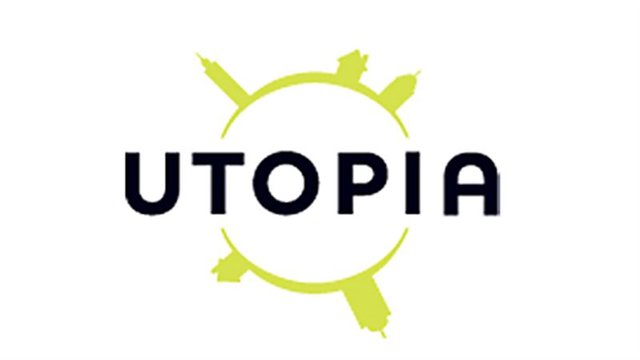Why I moved internet access service from Centurylink to Utopia

After nearly 10 years of waiting, to the day, I now have Utopia Fiber service. It's a really long story, so let me give you the overview.
In 2008, my wife and I decided to move from Orange County, California to Salt Lake City, Utah. But before we moved I had to know what to expect for internet access in Salt Lake City. I found that there was this service called Utopia. I checked it out and found that at the time, it was one of the fastest ISPs in the country. If I was going to move to Utah, I had to have that service.
We started out our lives in Utah living in the basement of a relative of my wife's. They didn't have Utopia, they had Comcast. We moved to an apartment after 6 weeks. The apartment didn't have Utopia, they had Comcast. After nine months of living in Utah, we bought a house at the bottom of the market in 2009. That house didn't have Utopia, either.
All I had was Centurylink, 5 Mbs down, and much less going up, and Centurylink would only guarantee 80% of that download speed. I needed something better. I called Comcast for more than a year hoping that they would add me to their database and hook me up. By chance we went to a home show where we met a sales rep from Comcast. That sales rep, a woman, got me hooked up to Comcast in two and a half weeks to a service that provided better than 50 Mbs at peak.
We lived there happily for about 5 years and decided to move when the house across the street put up a confederate flag, then the owner got busted, and then they ran up the skull and crossbones. I was mindful that I wanted to stay in West Valley City, a Utopia city, ever hopeful that they would hook me up.
I followed the Utopia story very closely. I went to city hall meetings to lobby for Utopia. I wrote letters, emails, made phone calls, wrote articles, doing everything I could to get that service, to escape the duopoly that was paying for the 3rd vacation house on the coast of Spain for the CEO of Centurylink or Comcast as the case may be.
Then Utopia won a $10 million settlement against the federal government concerning denial of a loan that they had applied for from a federal broadband fund. I don't know all the details, but after that settlement, Utopia got busy.
In my neighborhood, we have a Facebook page where the whole community shares their issues and we help each other out. That is where news of Utopia broke out. They were coming to our neighborhood. The entire neighborhood was looking for relief from just having one wired service provider: Centurylink. Some got spotty service. Some got slow but steady service (that would include me, too). Comcast refused to compete in our neighborhood.
Months went by. We waited. We called. We emailed. We checked again and again for availability on the Utopia website. And then one day, a few weeks ago, one of our neighbors got signed up. And then I got signed up. They came out and did a survey. They came out again and ran conduit under my driveway from the green box on my lawn to stop just sort of my house.
Yesterday, they completed the installation. They pulled more fiber from that box to a beefy modem mounted on the wall of my unfinished basement. I connected a CAT5e cable to the modem. That cable went to an Ethernet jack in my living room. I had the Centurylink modem connected to my router. When Utopia service was ready, I connected my new Google WiFi router to the new network. Then I connected the router to a switch, and my desktop computer to the switch.
I did speed tests like crazy yesterday. I went from 20 Mbs down and less than 1 Mbs up, to ~270 Mbs up and down. I had symmetrical service, like nothing I had ever seen before, realizing a 10 year old dream.
Besides speed and reliability, there are a few more reasons why I made this move, this change. I'm very political, and I was keen on the fact that court cases like Citizens United allowed Centurylink to use their profits to lobby for more protection from competition. In this case their competition was the government.
Utopia is really a consortium of 11 cities that had been begging and pleading with Centurylink and Comcast for faster, more reliable service. But the incumbent service providers refused to improve service for Salt Lake City. So the Utopia cities sold bonds to finance their network, their dream. And as they were doing that, Comcast and Centurylink spent money on the statehouse to ensure that Utopia was restricted by legislation. The incumbents also spent money on my representatives in Congress to ensure their market remained captured, uncompetitive.
Chances are, if you live in America, you also live in a city or town with one or maybe two wired internet access providers. They have comfortable franchise agreements with your city, so that there is no competition. But there is a way out.
One of the resources I learned about in my research on this subject is Community Networks, a sort of clearinghouse for information on community broadband networks. Utopia is a community network, funded by the fees for services they provide, owned by the cities that run the network. From Community Networks, I learned that more than 500 cities, towns and counties have built their own networks to escape the internet duopoly, often times, a monopoly, that FCC Commissioner Ajit Pai affectionately calls, "competitive".
If you are stuck with slow, unreliable service, you can use Community Networks to learn how other cities did their networks. You can learn about the state of Colorado, where more than 100 municipalities have re-asserted local control over their internet access choices. You will learn how to lobby for community broadband and inform your city council that there is a better way, a way to sanity for internet access.
The internet has become a utility. That statement is not even a matter of debate anymore, and I can remember when people used to think it was a luxury. When people think of cutting services, the internet is not one of them. They will cut landline and cable TV before they cut internet access.
I have also noticed that in the debate over net neutrality, in national political discourse, the mainstream media never discusses community broadband. It's not even on their radar. I've never heard even a Congressman talk about it on TV. I've never seen it even get a mention in the Washington Post or New York Times. That is how important the issue of community networks are.
In the net neutrality debate, we're not supposed to expand the scope of debate to include networks owned by the public, that consistently beat incumbent telcos and cable companies in performance and customer service. Private ISPs are simply no match for an organization like Utopia in Salt Lake City or the Electric Power Board in Chattanooga, Tennessee, both of which are offering 10 Gbs service to their respective service areas.
The reason why private ISPs are no match for community networks is simple: the constituency of interest for private ISPs is the shareholder. For community networks, it's the residents of the service area they serve.


A basic guaranteed income in the context of Maslow's Hierarchy of Needs
A sort of political movie review: Star Wars: Rogue One
Happiness isn't getting everything you want - happiness is a skill
The opposite of love is not hate, it is apathy
Fate, impunity and altruism